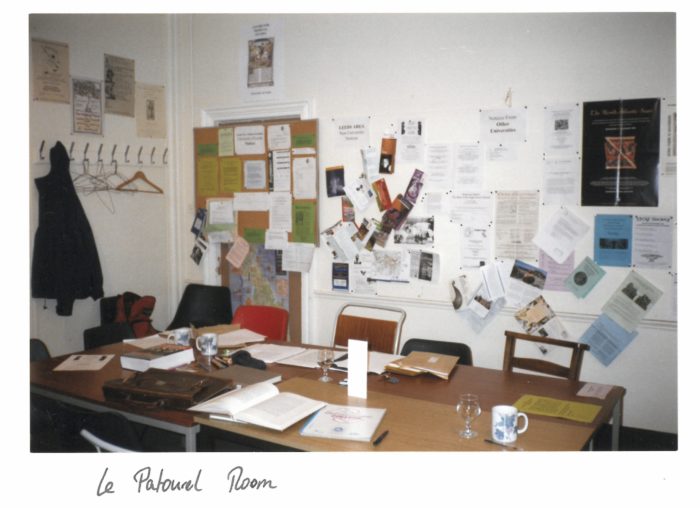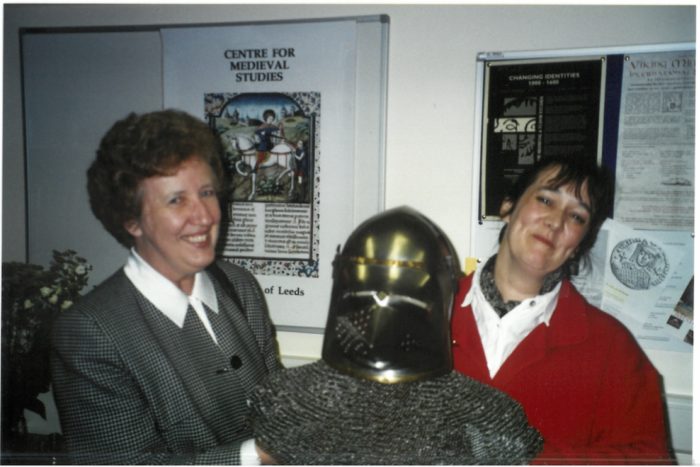Building a real centre: 1978-2003
It was announced that through the good offices of Dr. Muir a portion of noticeboard was now available in the French department for the use of the Centre.
GCMS Board of Studies minutes
22 January 1969
When the Centre for Medieval Studies was proposed in January 1967, John Le Patourel added the word ‘Graduate’ to the Centre’s title before delivering the proposal to the registrar. Lynn Muir was instrumental in removing this qualifier and restoring the original name in 1978. Changing the name broadened the potential for collaborative research at the CMS at all levels.
Since its foundation in 1967, the GCMS had always been a ‘centre without cost’: it had no budget and its staff were all employed by their home departments. Requiring no budget helped get the innovative Centre off the ground. In 1977, Lynn Muir (Department of French) took over as Director of the GCMS. Because there was no budget she had to spend a large part of her time requesting contributions from the heads of departments for the production of promotional materials. The old materials needed to be updated and replaced.
Leeds is rather a good place to think about the Middle Ages.
Ian Wood
Emeritus Professor of Early Medieval History
2003
The physical presence of the CMS
For the first ten years of its existence the GCMS had no physical presence within the University. Classes took place in whatever rooms were available, meetings were held in academics’ offices, and students had no place to call their own. The only physical space the Centre had was a few square inches of noticeboard outside of Lynn Muir’s office. The GCMS was, at this point, a virtual centre.
In 1979, after much lobbying of the university, Lynn Muir was able to obtain a room for the CMS, where students could work and where meetings and events could take place. The room was named after John Le Patourel; it was small but it was ‘a great triumph to be allowed a space that we could call our own’ (Peter Meredith, Emeritus Professor of Medieval Drama). As Lynn argued in a petition letter in 1979, other departments wanted additional new rooms but ‘we are asking for the right to exist’. The first Le Patourel Room was housed in what is now the Workshop Theatre, then part of the Emmanuel Centre and later moved to the Parkinson Building. This event was marked by a party in November 2000, attended by Jean Le Patourel.

The original Le Patourel Room, in what is now the Workshop Theatre.
Establishing the Centre
By the early 1990s nearly 100 MA students had graduated from the CMS and it developed links with the Royal Armouries, the Henry Moore Institute, and Leeds Museums and Galleries.
In 1996, Mary Swan was appointed as the Director of Studies, the first person to be appointed directly to the CMS. A tenacious advocate for the Centre, Mary oversaw the introduction of the PhD programme in Medieval Studies in 1999 and undergraduate elective modules. She was also instrumental in arranging the move to the current premises on the top floor of the Parkinson Building.

Joyce Hill, Emeritus Professor of Medieval Literature and Karen Watts, Curator Emeritus at the Royal Armouries.
